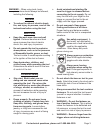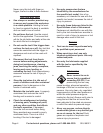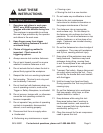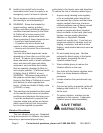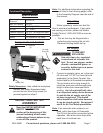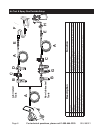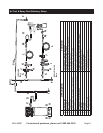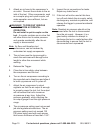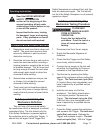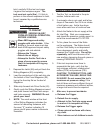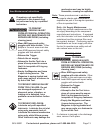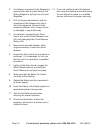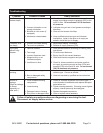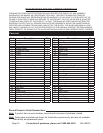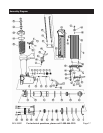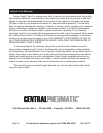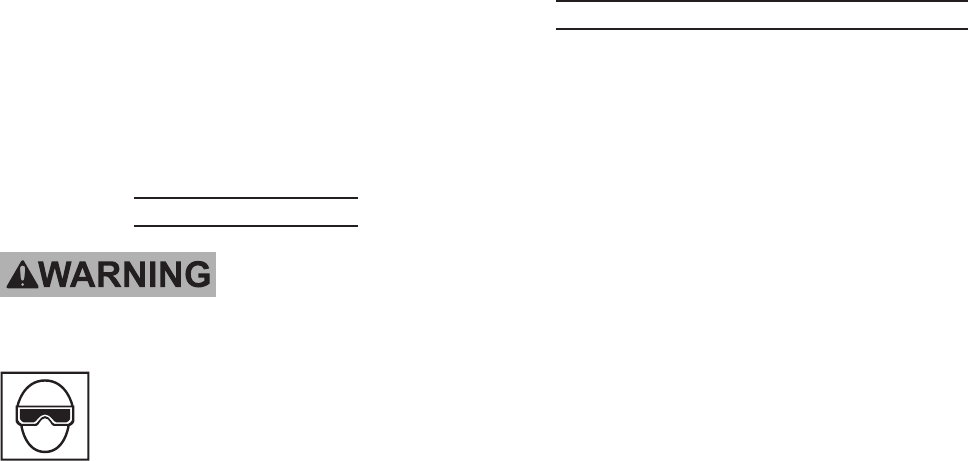
Page 12 For technical questions, please call 1‑800‑444‑3353. SKU 68021
held, carefully lift the tool and press
it against the workpiece again. The
tool must not cycle (re). If it fails to
perform in the manner explained in bold,
have it repaired by a qualied service
technician.
Loading the Tool
TO PREVENT
SERIOUS INJURY
FROM ACCIDENTAL OPERATION,
BEFORE LOADING:
• Wear ANSI‑approved safety
goggles with side shields. Other
people in the work area must also
wear ANSI-approved impact safety
goggles with side shields.
• Release the Trigger.
• Detach the air supply.
• Attempt to re the Tool into a
piece of scrap wood to ensure
that it is incapable of ring any
fasteners.
1. Depress the Latch (58) and pull back the
Sliding Magazine (52) completely.
2. Load the pointed end of the nail strip into
the bottom of the Fixed Magazine (50),
laying the the strip at on the bed of
Magazine.
3. Slide strip forward into Drive Guide (40).
4. Gently push the Sliding Magazine inward
and push forward until the Latch snaps
and locks securely. WARNING! Do not
pinch your hand.
5. NOTE: The small window at the front
of the Sliding Magazine indicates the
amount of remaining fasteners, with
the zero (“0”) marker indicating 15
pieces and 5-piece marker increments
thereafter.
General Operating Instructions
1. Test the Tool, as directed in the prior
section, before each use.
2. If automatic oiler is not used, add a few
drops of Pneumatic Tool Oil to air intake
of tool before use. Add a few drops
more after each hour of continual use.
3. Attach the Nailer to the air supply at the
Air Inlet Plug. Start your compressor
and check the pressure, making sure it is
set at the recommended 70-120 PSI.
4. To re, place the nose of the Naile
on the workpiece. The Nailer should
not re if the Safety is not depressed.
Once depressed, gently and briey
squeeze the Trigger once. Do not re
repeatedly; nails could bounce off of
one another, damaging the work piece or
causing PERSONAL INJURY.
5. If the tool requires more force to
accomplish the task, verify that the
tool receives sufcient, unobstructed
airow (CFM) and pressure (PSI).
CAUTION! TO PREVENT TOOL AND
ACCESSORY FAILURE, RESULTING
IN INJURY: Do not exceed the tool’s
maximum air pressure rating. If the
tool still does not have sufcient force at
maximum pressure and sufcient airow,
a larger tool would then be required.
6. After use, to prevent accidents:
a. Release the Trigger.
b. Detach the air supply.
c. Attempt to re Tool into scrap wood
to ensure it is incapable of ring.
d. Release the Trigger again.
e. Clean external surfaces with clean,
dry cloth.
f. Store indoors out of children’s reach.



